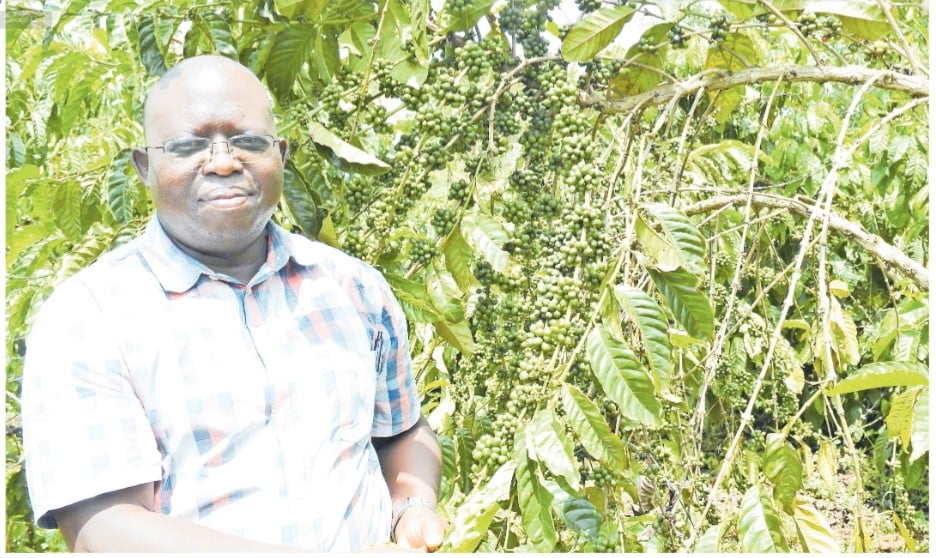
In what is fast turning out to be a common occurrence in Kampala, it has emerged that a South African businessman lost $311,500 (about Shs1.1b) in a scam allegedly involving a senior member of the Cabinet and several security operatives.
The fraudsters masquerading as members of the Tender Board of the Ministry of Defence, reportedly duped the Johannesburg-based Jordan Valley (Pty) Limited into remitting the funds as part of the process of procuring a $123.5m (about Shs451b) contract for the supply of Information Technology (IT) software and hardware.
Information available to this publication indicates that the firm also handed over two iPads, a Samsung Tablet and two laptops, all valued at Shs12.3m, as samples of what they could supply.
Contact
According to emails that Jordan Valley executive, Mr Emmanuel Murumbi, sent to this newspaper, contact between the fraudsters and his firm was first established at some point in 2019. This was after a man who identified himself as Tunga Innocent Babigamba contacted him via the business and employment-focused social media platform, LinkedIn.
Babigamba is said to have presented himself as a businessman involved in engineering and construction. He said he was interested in partnering with a firm with which he could work to supply IT-related stuff to Uganda’s Defence ministry. Babigamba led the South Africans to believe he had close relations with the secretary of the Tender Board of the Ministry of Defence, whom he said was Peter Kaweesa.
On September 1, 2019, Murumbi jetted into Uganda. He was picked up from the airport and booked into a cottage in Lubowa, where he had dinner with Babigamba. On September 2, he had a meeting with Kaweesa, who arrived at the cottages with armed uniformed police escorts.
On September 4, Murumbi was picked up from the cottages in a cream Land Cruiser and driven to “a government office” where he was introduced to two other Ugandan “officials” as a potential supplier of the IT equipment that the government was looking to procure. He departed Uganda on September 5 and returned on October 9 and was booked into a hotel in Kampala.
The con begins
On October 10, 2019, Kaweesa, in the company of armed escorts, picked up his passport to facilitate the process of registration of a company. Kaweesa later sent Murumbi a message via WhatsApp, informing him that he was required to pay $24,000 (Shs88m), and another $7,200 (Shs26m) in vetting fees. The message was sent via a UK-registered number +44 7438 217942.
Murumbi filled in an application for a work permit and completed a company registration form, which he handed over to the said Kaweesa along with $31,200 (Shs114m).
On October 12, Kaweesa returned to hand over a certificate of registration, as well as a memorandum of understanding and articles of association for the company. After, he saw Murumbi off to the airport. Murumbi returned to Uganda on December 12 to deliver samples and sign the preliminary contract.
Murumbi was on December 17 driven to the same alleged government building where he had earlier met Kaweesa. The group of fraudsters had now increased to include two men who identified themselves as Martin Sousu and Joseph Morris. The latter (Morris) is said to have taken charge of the meeting and informed Murumbi that he needed to pay $1,600 (Shs6m) for the purchase of bid documents and another $50,000 (Shs180m) in bid fees. The South African was further informed that his firm would be required to pay another $489,441 (about Shs1.8b) as bid security fees.
It was after that meeting that he was introduced to the senior member of Mr Museveni’s Cabinet earlier alluded to.
“From the boardroom, I was taken to the senior Cabinet member’s office, where after passing security checks in different offices, I finally met him. The meeting was brief. Mr Morris introduced me to him. He briefly explained who I was and that we were investors in the country. He (Cabinet member) did not say much, but acknowledged my presence and wished us good luck,” Mr Murumbi wrote.
Mr Murumbi returned to South Africa and commenced sending money. The money was remitted to Kaweesa through a Kampala-based firm.
Smelling a rat
Murumbi, however, started feeling uncomfortable after he had remitted up to $220,000 (about Shs803m) towards payment of the bid security. The source of discomfort was that until then, there was no formal agreement on the table.
On July 2, 2020, Kaweesa sent an email to Murumbi apologising for having gone slow on the procurement.
“I'm so sorry I'm slow lately. I have been challenged to my soul. My lill girl was in so much pain I committed an ugly sin and questioned God. Please work on the e-learning and get back to me, we must keep the fire burning,” he wrote.
On August 31, 2020, Mirumbi wrote to Morris demanding documentation related to the said tender.
“I need the tender document copy. I paid for it, and why then shouldn’t I get it? I don’t even know the contents thereof, and should there be any clauses therein which have material impact, I don’t know. Without the tender document copy given, I am afraid I can’t proceed. I have already spent $311,500 [Shs1.1b], and nothing shows to me that I responded to a tender!!” he wrote.
All that he had at the time was an alleged tender reference: Sup/2000 ICT equipment, computers, printers and computer accessories.
That same day, Morris, in an email which he signed off as the Secretary to a Special Contracts’ committee, wrote back, claiming he was not at liberty to discuss details around “orders and directives” of the President to National Anti-Covid Task Force and Covid Emergency contracts. He, nevertheless, urged Murumbi to save the contract.
“I am also prompted to inform you; that your contract is categorised under the Emergency Contracts, which is directly supposed to be in the shipping line to here now, since every government programme needs computers… My advice is that you act by schedule and certainty to comply with your obligations sooner than later to have your draft valid,” he wrote.
On September 2, Morris sent Murumbi another email in which he once again urged him to save his firm’s contract.
“Although fulfilling compliance requirements may seem to your analysis the worst action to take now, to the contrary we find it the only best option, chance and choice at your disposal to save Jordan Valley, $311,500 which you allege to have spent in the process to get the $123,446,800 contract at stake and the business interests of all your stakeholders,” he wrote.
He signed off by giving the South Africans five days within which to save the deal.
The realisation that he had been defrauded came late in September when he visited Uganda’s High Commission in Pretoria.
“That was a scam by people who abuse government offices and other high offices. There was never a contract for the procurement of such services,” a trade attaché told him.







